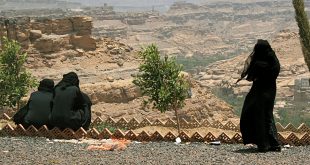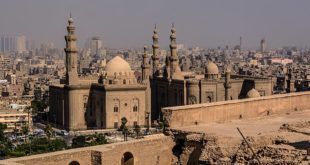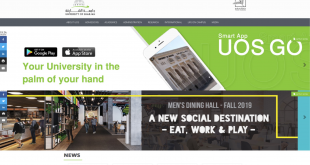Issue 28, summer/fall 2019 https://doi.org/10.70090/MYG28SJD Abstract Science journalism in Egypt reflects the way science is taught, perceived and practiced in the country. Online publications cover science and technology in different ways. Yet, all of them rely on translators as most of the science stories are sourced from foreign outlets. This …
Read More »The Reality and Challenges of Scientific Journalism in the Arab World (Arabic)
Issue 28, summer/fall 2019 https://doi.org/10.70090/HH28SJAW Scroll down for the Arabic abstract. Despite its early onset in the Arab world in the nineteenth century, science journalism is, nowadays, facing different challenges that hinder its role in contributing to the sustainable development and prosperity of our society. The main pillars of science …
Read More »BOOK REVIEW | OUR WOMEN ON THE GROUND
What was it like to be a woman over there?” Hannah Allam recounts being frequently asked of her time reporting from Iraq in the first essay of Our Women on the Ground. The collection of essays by female journalists, edited by Lebanese-British journalist Zahra Hankir, provides an account of “life …
Read More »BOOK REVIEW | America & Islam: Lawrence Pintak’s Holy Grail?
Award-winning journalist-cum-academic Lawrence (Larry) Pintak has been on a mission for years trying to explain Islam to Americans, with his latest volume nailing it in the age of hysterical xenophobia and white supremacy. The cover of America and Islam: Soundbites, Suicide Bombs and the Road to Donald Trump sets the …
Read More »Film Review | Watching “Us” in the Middle East
Issue 27, winter/spring 2019 https://doi.org/10.70090/MM27WUME “Us,” Jordan Peele’s newly released horror film, raises questions about American identity that will appear very different to viewers outside the United States. Peele has claimed that “Us” aims to hold up a mirror to American society, showing “us” how “we are our worst enemies.” …
Read More »Book Review | Preaching Islamic Renewal: Religious Authority and Media in Contemporary Egypt
Issue 27, winter/spring 2019 https://doi.org/10.70090/IVM27PIR The impacts of new media have long fascinated scholars of contemporary Muslim societies. Beginning from the premise that new media configurations portend the “fragmentation” of religious authority (Eickelman and Anderson 1999; Anderson 2003), such works often display a curious mix of euphoria and anxiety about …
Read More »Marathon TV Watching among Emiratis in the Interactive Media Environment
Issue 27, winter/spring 2019 https://doi.org/10.70090/AAAM27TV Abstract The study investigates the habits of binge TV watching—also called marathon TV watching—among a sample of Emiratis. It refers to watching consecutive episodes of a series in one setting for several hours. The research examines the expected outcomes for binge-watching and the possibilities of …
Read More »Cultural Identity Expressed Through Electronic Platforms of Higher Education Institutions: A Comparative Study (Arabic)
Issue 27, winter/spring 2019 https://doi.org/10.70090/EK27CIEP Scroll down for the Arabic abstract. There is substantial cultural diversity in many societies these days. Consequently, the need for cross-cultural institutions to build and present their ethical values and cultural identity within different systems and societies has grown. Most higher education institutions face the …
Read More »Arab Millennials’ Articulation of Identity in Cyberspace: A study of three MENA YouTubers
Issue 27, winter/spring 2019 https://doi.org/10.70090/MA27QMIC Abstract This study investigates how three young Arab influencers negotiate their identities in cyberspace. Abdallah Al Maghlouth, Abdulrahman Mohammed, and Laila Hzaineh were selected for this study because they were listed among the top MENA influencers by the Arab Social Media Summit (2015) or by …
Read More »Organizational Identity in the Egyptian Telecom Sector: A Field Study (Arabic)
Issue 27, winter/spring 2019 https://doi.org/10.70090/ZSAG27ET Scroll down for the Arabic abstract. This study attempts to identify and explore the process of organizational identity formation inside the Egyptian telecommunication sector using a field survey and a questionnaire answered by 200 employees at varying administrative levels. By identifying and exploring the process, …
Read More » Arab Media & Society The Arab Media Hub
Arab Media & Society The Arab Media Hub










